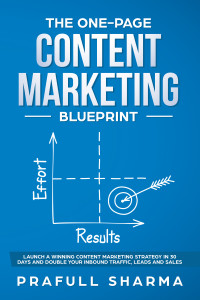5 Examples of How Ecommerce Brands Are Using Content Marketing To Attract More Customers
Have you ever heard of the saying “people hate to be sold, but they love to buy?” As buyers become more discerning, traditional, hard-sell tactics are no longer effective. This is why online store owners can no longer overlook the importance of content marketing to increase their sales.
In fact, studies show that ecommerce stores that use content marketing get a 2.9% average conversion rate, while those who don’t only get 0.5%.
Internet marketing expert Marsha Collier explains why content marketing is effective: “Content-based marketing gets repeated in social media and increases word-of-mouth mentions; it’s the best way to gather buzz about a product.”
If you’re unsure how you can use content marketing to increase your online store’s ROI, you can take inspiration from the following examples from top ecommerce brands.
Asda
Asda is a prominent chain of supermarkets in the UK and it also has an online store where people can shop. Asda decided to create a YouTube channel to reach customers, but if you think about it, who would want to subscribe to a supermarket YouTube channel? No one is really interested in watching videos featuring grocery items.
What Asda did is partner with content producers and created the YouTube channel called Mum’s Eye View. As its name suggests, the channel is targeted at moms who are the primary customers of the supermarket. The videos give tips about health, nutrition, fashion, beauty, food inspiration, and many more.
Asda was able to sell its products without the traditional hard-sell tactics. For example, one video included a link to its online store where people could purchase a bunny lap. 1,100 customers clicked on the link and made a purchase.
MR PORTER
MR PORTER is a leading online store for men’s clothing. Fashion is one of the most competitive retail categories online and MR PORTER was able to rise above the clutter by using content marketing strategically.
How? MR PORTER’s website features a section called “The Journal” that features professionally written and curated articles. For example, they did an interview with soccer powerhouse team Chelsea FC manager Jose Mourinho. There were no traditional advertisements on the articles, just small notes on what Jose Mourinho was wearing.
Bonobos
Online quizzes have risen in popularity over the past few years. BuzzFeed has popularized quizzes such as “Which Disney princess are you?” and “Which Hogwarts House you truly belong in?” Quizzes are engaging and internet users are genuinely interested to see what results they’re going to get.
Recognizing this trend, men’s online clothing store Bonobos included quizzes in its content marketing strategy. They ask their site visitors several questions and depending on their answers, they subtly recommend products from their online store. Here’s a quiz question example Bonobos uses to sell their pants collection: “Do you have thin legs or find yourself frequently asking a tailor to taper your pants?”
One advantage of using quizzes is by answering your questions, shoppers are already making micro-commitments which makes it easier for you to close the sale.
Made.com
Another content marketing strategy you can employ is crowdsourcing, which is basically asking your customers to contribute content for you. Online furniture store Made.com uses a great crowdsourcing strategy to encourage repeat buyers, as well as attract new ones.
What Made.com does is post photos contributed by its customers on its Instagram account. This provides great social proof, as well as show potential buyers how Made.com’s furniture pieces would look in their homes.
Another advantage of crowdsourcing for content is you don’t have to create content all the time since your customers are actually giving it to you – for free.
Urban Daddy
Urban Daddy is another online apparel store for men. What’s interesting about Urban Daddy’s content marketing strategy is instead of the usual blog, it actually has a separate site called Get Kempt that’s solely dedicated for editorial content. The site contains no product promotions but links to the Urban Daddy online store in a subtle way.
Urban Daddy’s strategy is effective because it follows the principle of “results in advance” as popularized by marketing guru Frank Kern. By providing its potential buyers with useful and relevant content (for free), trust is built which helps increase conversion rates.
Content Is King
Whatever you’re selling online, content marketing is vital to building likeability, trust, and credibility among your target customers. You don’t have to be at the level of the ecommerce brands cited above immediately. You can start small, like creating a blog section on your website and then build on it.
If you want to fast track your content marketing progress, feel free to get in touch with us.
In the meantime, we would like to hear, if you’ve seen other great examples of how ecommerce brands are using content marketing. If you own an online store, how do you use content marketing for your own business?
Share This Story
3 Comments
Leave A Comment
Get the latest growth ideas, strategies, and best practices delivered to your inbox.
Quick read that helps 7000+ subscribers.









[…] So, how do you maximize the potential of content curation as a content marketing strategy? […]
[…] Content marketing leverages various forms. Blogging was by far the one businesses were most familiar and comfortable with. Blogs at this point were standard additions to websites and were used as a way to boost SEO effectively. However, it wasn’t long before marketers realized readers wanted a more diverse mix of content. This is why infographics, case studies, ebooks, and interviews were eventually added to the mix. More importantly, video began to dominate. […]
[…] This still holds true until today—you just have to contend with a lot of clutter. And this ultimately means that content is even more relevant than ever. And when done well, more effective than before. This is precisely why businesses are beginning to focus on content marketing. […]